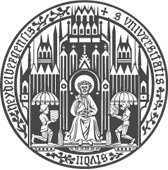
Grounded NLP for Spatial Navigation
Module Description
| Course | Module Abbreviation | Credit Points |
|---|---|---|
| BA-2010[100%|75%] | CS-CL | 6 LP |
| BA-2010[50%] | BS-CL | 6 LP |
| BA-2010[25%] | BS-AC | 4 LP |
| BA-2010 | AS-CL | 8 LP |
| Master | SS-CL, SS-TAC | 8LP |
| Lecturer | Raphael Schumann |
| Module Type | |
| Language | English |
| First Session | 30.04.2020 |
| Time and Place | Thursday, 14:15-15:45, INF 306 / SR 13 |
| Commitment Period | tbd. |
Prerequisite for Participation
•Basic knowledge in probability, statistics, and linear algebra, e.g. Mathematical Foundations and Statistical Methods for Computational Linguistics.
•Basic knowledge in neural networks, e.g., Neural Networks: Architectures and Applications for NLP
Assessment
•Active participation (read papers and submit/ask questions)
•Paper presentation and discussion
•Implementation project
Inhalt
Spatial Navigation is the ability of an agent to orientate itself in a given environment. This ability can be examined by measuring the success of tasks that include reaching a goal location or finding a certain object. The environment is usually 2-dimensional and artificially created.
The role of NLP in this setting is twofold. In one case, the instructions are given by a human in natural language and an artificial agent learns to interpret these in order to navigate the environment. The natural language understanding of the artificial agent is grounded in the reward of fulfilling the given task. In the other case, the navigation instructions are generated by NLP and a human agent is on the receiving end. Here, the natural language generation is grounded in the reward. Recent research focuses on bridging this setting to the real world by using geospatial maps or StreetView as part of the simulated environment.
Module Overview
Agenda
| Date | Session | Materials |
Literature
In this seminar we will read and discuss literature on both cases mentioned above:
Human natural language navigation instructions -> NLP -> agent (e.g. MacMahon et al., 2006, Chen et al., 2019) NLP navigation instructions -> human agent (e.g. Daniele et al., 2016 , Vries et al., 2018)


